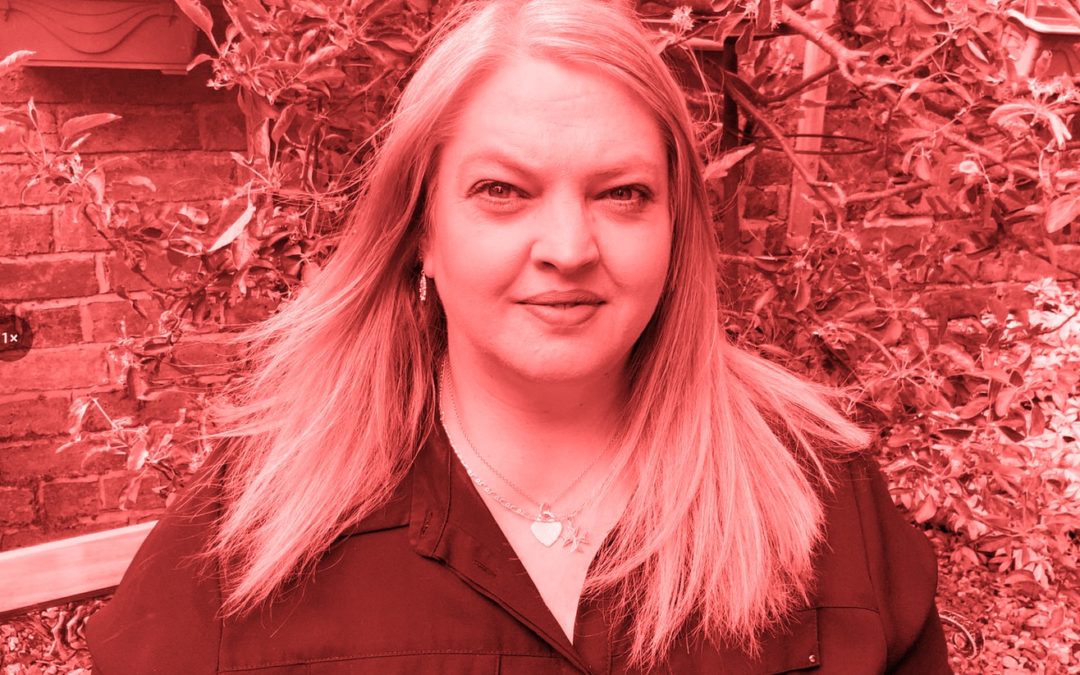Meet Michelle Kettles, Welfare and Benefit Team Manager, South Staffordshire Council. She’s got a lovely reassuring voice, handy for her current role, with a wee twang of Scottish and the north-east. She was chosen to be South Staffordshire Council’s everyday hero by managers and her staff for her role during the pandemic as part of a virtual call centre.
She was part of a team of twelve diverse council officers, who came together to provide the seven day a week community helpline. What’s really different about the South Staffordshire approach is how they have fully embraced working with grassroots organisations, at a local level, rather than impose something ‘new’ top down.
Unlike some councils that have bigger urban areas and bigger budgets, who provide centralised support, South Staffordshire Council decided to work with existing groups in the local community. There’s a higher than average ageing population, no towns, the area is very rural with small villages so there are hundreds of church, community and parish groups. As the pandemic struck, the Council, using a simple online form, pulled together what groups were out there to find out what they were doing. What’s brilliant about this approach is that they were able to maximise what support was already in place and signpost people to their local support group.
She was running out of food, so I got her three days of supplies
When the pandemic hit and the lockdown started, food was the main reason people were phoning the Council. Older people who were reliant on family and friends to get their shopping lost their support overnight, as many needed to isolate. Lots of people were signposted to local church and Parish Council groups across the district, but some needed immediate help. One single mum, with a toddler and baby, who was self-isolating phoned in a panic. As Michelle recalls, “She was running out of food. She was really upset so I borrowed the council credit card and got her three days of supplies from the supermarket. I then linked her up with the Chase Coronavirus Support Network for ongoing support.” Chase Coronavirus Support Network took calls to collect prescriptions and to walk dogs for people isolating. Some community groups such as Mindescape introduced ‘care packages’ – craft boxes, gardening boxes, and interest packages, whilst Brewood Helpers Group has introduced a befriending service and they will call anyone who feels isolated on a regular basis.
People’s mental health is deteriorating with isolation
Over time, calls became more complex for Michelle and her team as the lockdown continued. “We noticed an increase in calls from people who were not coping well with the lockdown, people’s mental health was deteriorating with isolation,” Michelle says. Michelle’s usual day job is managing the welfare and benefits service, including housing benefits, homelessness, disabled facilities grants, and council tax support – so she’s got huge amounts of customer experience and understands the financial hardships people face. She communicated the new helpline to everyone the Council knew about in benefits. The experience people had within her team meant they could help ‘train up’ her colleagues in the new call centre to provide support – the redeployed policy and partnership, elections and leisure centre staff. A good ‘script’ was developed and Michelle made sure the team knew when to pass on more complicated calls to her or another more experienced colleague.
Staff have relished the chance to help
The virtual team are using daily Microsoft Teams online meetings to keep in touch and they’ve all adapted well to their new frontline roles. Laura, who’s normally managing one of the council’s leisure centres, has relished the chance to do something productive to help, saying, “It gave me that sense of pride knowing that I am helping someone during this difficult time and doing a different role is also really exciting.” Some of their calls haven’t always been quite what the Council had in mind when they set up the helpline – a lady calling about what the Council would suggest as a venue for her 90th birthday party (options were given) and another lady asking how to read the gas and electricity meters – she was put in touch with a local group to help. Even an issue with a blocked toilet was ‘dealt with’!
People have really struggled with isolation and loneliness
As Michelle says, “We learned that if people’s normal routines are taken away – for example their usual help – then they feel lost and vulnerable. People have really struggled with isolation and loneliness. It’s been a real privilege to have been able to help so many at this tough time.” Michelle started working for the public sector, first at the Department for Work and Pensions when she was 17, then moved to the Council later. To relax she enjoys gardening – she’s very excited to have a garden having recently moved from a flat. She’s a single mum to two girls and four cats.
If you are interested in exploring public sector jobs within West Midlands please visit www.wmjobs.co.uk



